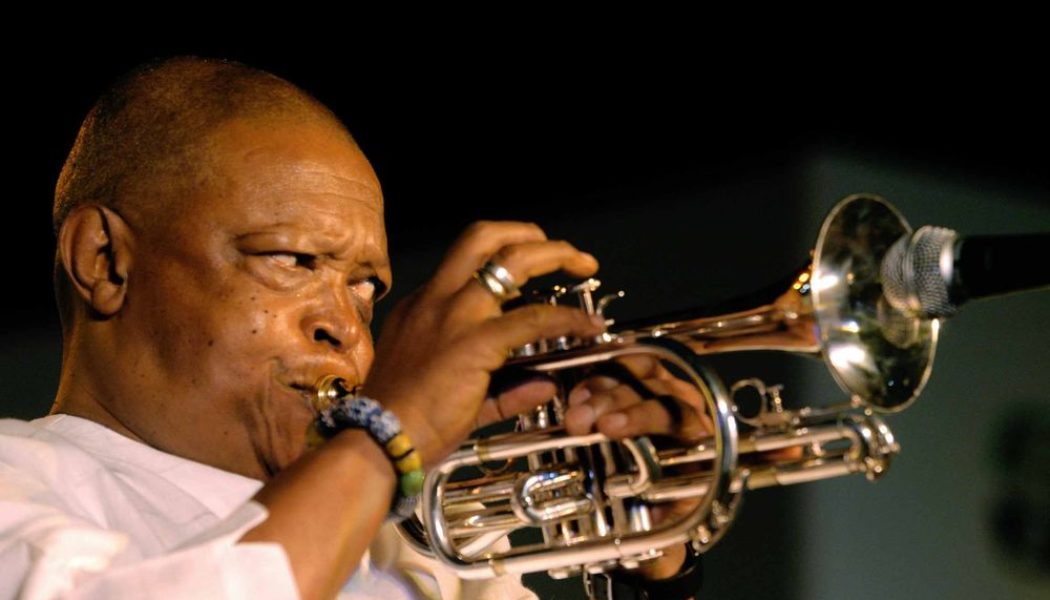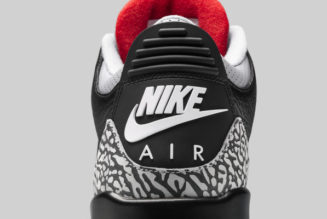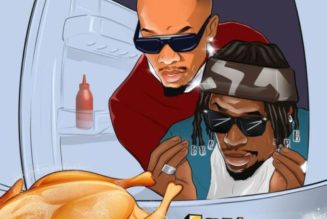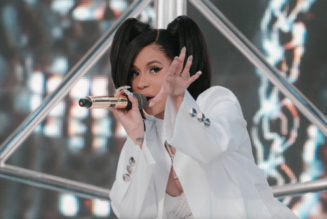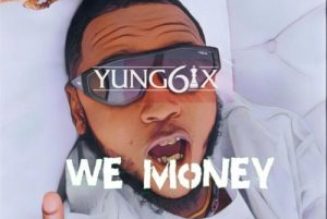It’s almost as if there’s a dark cloud hovering over the month of January. It’s the month for fresh starts but, in the jazz world, Africa has lost some of its best musicians. Each of these legends played a role in shaping the sound of African music and captured their countries’ political struggles.
Bra Hugh Masekela: 4 April 1939 – 23 January 2018
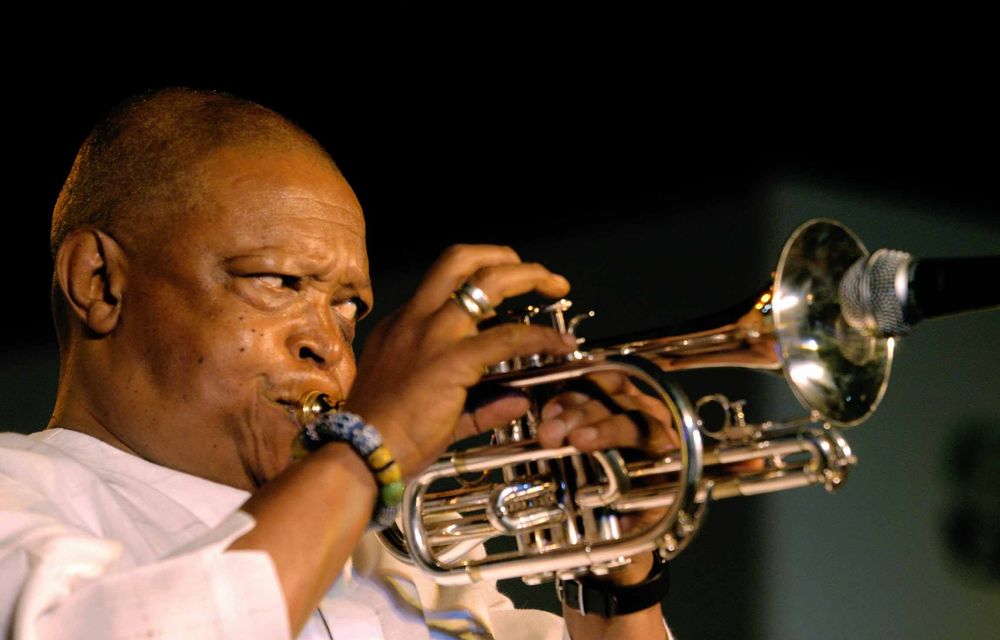
Hugh Masekela played the trumpet in the Jazz Epistles in the late 1950s. Its other members were pianist Abdullah Ibrahim (at that time he was called Dollar Brand), saxophonist Kippie Moeketsi, trombonist Jonas Gwangwa, drummers Early Mabuza and Makaya Ntshoko, and Johnny Gertze on bass.
In their twenties at the time, the group composed music that was entrenched in the traditions, customs and cultures of the indigenous people of South Africa.
“Our tireless energy, complex arrangements, tight ensemble play, languid slow ballads, and heart-melting, hymn-like dirges won us a following and soon we were breaking all attendance records in Cape Town,” writes Masekela in his 2004 biography, Still Grazing: The Musical Journey of Hugh Masekela.
They gained popularity from performing at the Odin Theatre, built in about 1945 in Sophiatown, and published their first and only album, Jazz Epistle Verse 1, recorded in 1960, before going into exile.
And at just 21 years old, Masekela’s solo music career began when he sought refuge in New York, where he would spend 30 years of his life. He enrolled at the Manhattan School of Music and he submerged himself in the city’s jazz landscape. It was there that Masekela saw performances by trumpeter Miles Davis, saxophonist John Coltrane, pianist and composer Thelonious Monk, bass player Charlie Mingus and drummer Max Roach.
It was under the guidance of jazz trumpeter and educator Dizzy Gillespie, alongside trumpeter and vocalist Louis Armstrong, that Masekela was motivated to create an individualistic sound that was inspired by Africa. Still in school, he released his debut album in 1963 titled, Trumpet Africaine:The New Beat From South Africa, marking the starting point of what would later be an exceptional career.
Masekela moved to Los Angeles in the late 1960s where he would later perform alongside the likes of singers Janis Joplin and Otis Redding and Indian classical composer Ravi Shankar at the Monterey Pop Festival. It was his 1974 political hit song, Stimela, on his album titled I Am Not Afraid, that became one of his biggest defining moments.
Stimela, written in 1972, is about workers travelling by train to the mines during apartheid.
Singer, actor and producer Kabomo Vilakazi said: “What makes Stimela so incredible rhythmically — even if you take out the core base line at the beginning and you don’t understand isiZulu — is that you can feel the strength of a train and what it takes to make it move. Just through the rhythm of the song you can actually feel how he [Masekela] emulates the rhythm of a train through the song,” says Vilkazi.
Oliver Mtukudzi: 22 September 1952 – 23 January 2019
One year after Masekela’s death, the legendary Oliver Mtukudzi died. With his guitar in hand, the Zimbabwean born musician, called “Tuku”, used his music to reflect on life. He will also always be known for his contribution to bringing about awareness of HIV and Aids at a time when the illness was stigmatised and little was known about it. In songs like Todi and Tapera, Mtukudzi, who was open about his HIV positive status, expressed the devastation caused by the disease in Africa.
Speaking about Todii, which was released in 1999, Kabomo says that musicians in the past had a sense of responsibility to inform and enlighten their audience about social, political and other issues.
“There’s a very thin line between creating music that is part entertainment and part educational. It can become preachy and at a concert people don’t come to hear that. But the brilliance of those songs, at the time in which they were written, people were afraid of just mentioning HIV/Aids in a public space, but for him to metaphorically be able to speak about it and be entertaining was very important. And it was part of what made HIV education more accessible to younger audiences,” Kabomo says.
Jonas Gwangwa: 19 October 1937 – 23 January 2021
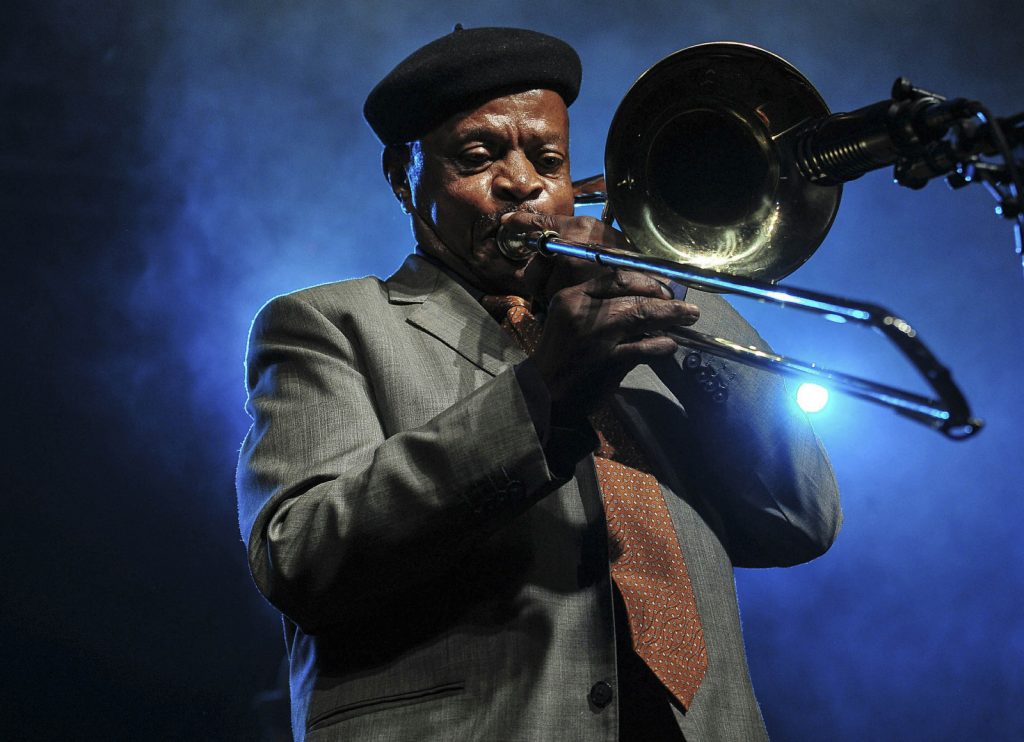
As if 2018 and 2019 didn’t steal enough from us, 2021 left the country shattered after Jonas Gwangwa and Sibongile Khumalo died within days of each other. Singer, songwriter and producer Gwangwa entered the jazz landscape in the 1950s, playing trombone for the Jazz Epistles alongside Masekela. Born in Orlando East, Soweto, his contribution to jazz spanned more than 30 years aiding the shifts in the South African jazz scene.
Like Masekela, Gwangwa was an anti-apartheid advocate when he went into exile in 1961 when touring with the musical production of King Kong in the United States. In 1980, he returned to Africa and remained in exile in Botswana. There he formed the Amandla Cultural Ensemble, which toured the world, visiting about 60 countries, mobilising the international community against apartheid.
In the film South African Blues, Gwangwa speaks of the devastation that exile shares. “My family is strewn all over the place. My wife is in the United States because she couldn’t work here. And she’s applied for asylum there. My children are in Holland because I can’t take them to the United States. We haven’t been able to acquire visas for them. So I am just roaming. I don’t have a country as it is.”
Taken off his album, A Temporary Inconvenience, which was released in 2000, Ulibambe Lingashoni (which means don’t let the sun go down) demonstrates his skill in playing the trombone as well as his powerful vocal ability.
Ulibambe Lingashoni reflects on his own journey enduring exile in the 1970s and his work in leading the Amandla Cultural Ensemble.
Gwangwa was nominated for a Grammy along with George Fenton for the Best Song Written For Visual Media at the 31st Grammy Awards for their score in the 1987 film, Cry Freedom.
Sibongile Khumalo 24 September 1957 – 28 January 2021
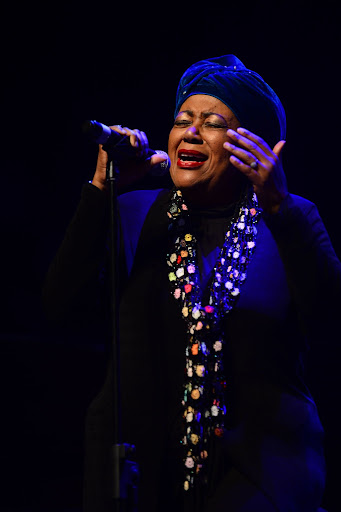
Like Gwangwa, Sibongile Khumalo was born and grew up in Soweto. She died on 28 January, five days after Gwangwa. Her vocal versatility defined her career as a classical jazz, opera and gospel singer.
At the age of 14, Khumalo knew her passion was music, and desired to become an opera singer. Her father had discouraged her because he knew she would have to move overseas to study, because there were no opportunities for black people in South Africa during apartheid.
She completed a Bachelor of Arts in music at the University of Zululand and her honours at the University of Witwatersrand.
In 1993, Khumalo won the Standard Bank Young Artist Award for Music, four South African Music Awards for her contributions to jazz and three First National Bank Vita Awards for her work in opera and concerts.
Kabomo, recalling his fondest memories of Khumalo, said that beyond her exceptional vocal range, ability and flexibility, she believed in empowering young artists.
“Mama Sibongile was someone I knew personally. I considered her a mother and friend. I had an opportunity to work with her and more than her music Mama Sibongile’s legacy was how she made it her responsibility to take care of young artists. She really raised black artists. She encouraged us, brought us into her home, studio sessions, shows and that was something I respected about her,” Vilakazi says.
In an interview with Jazz at Lincoln Centre’s Jazz Academy in 2019, Khumalo spoke about her versatility in blending jazz with opera, something she was known for globally.
“When I was doing jazz shows I’d be singing a song. There was this need to do something vocally and it just happened in the music. It would happen in the same song from one phrase to the next and suddenly there’s a switch. It’s a very strange thing.
“It was only when journalists and people generally were asking how do you switch from one genre to the other [that] I started paying attention and noticing because I needed to be aware technically what I was doing in order to note damage the instrument,” she said Khumalo.
